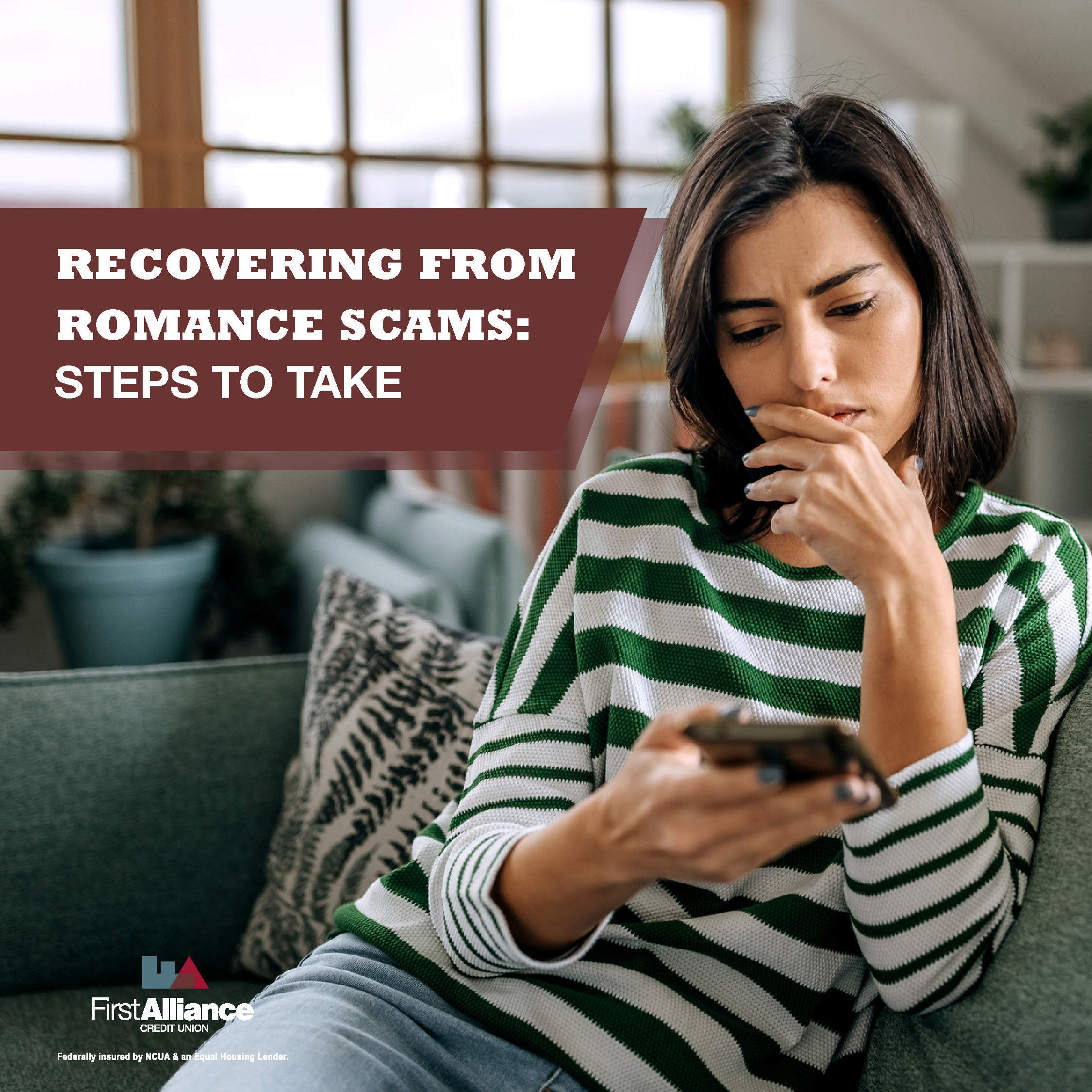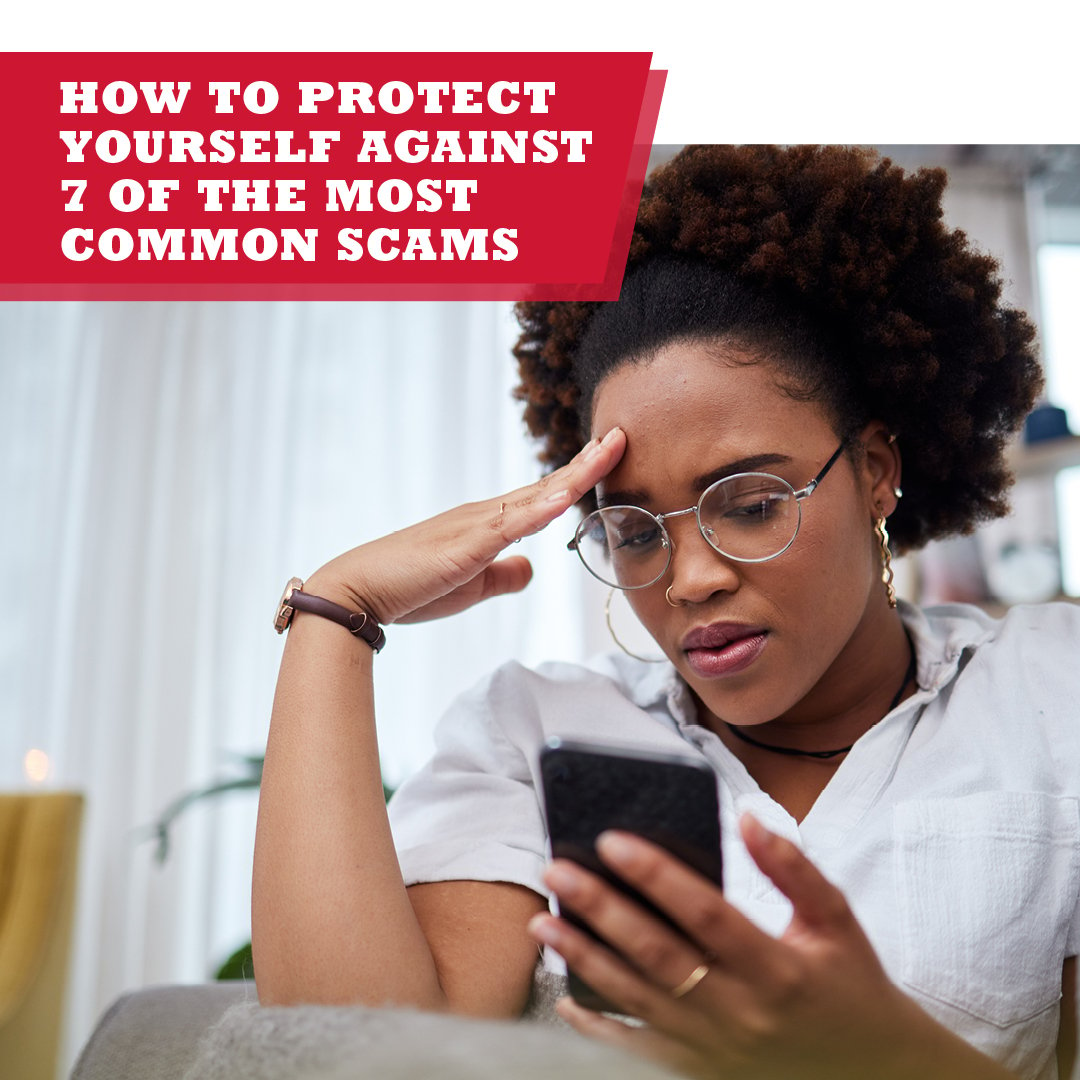4 Lessons Inventing Anna Taught About Avoiding Scams
Thanks to the power of streaming media, almost everyone has heard about Anna Sorokin, aka Anna Delvey. For most of the 2010s, she lived in New York,...

In the digital age, finding love online has become increasingly common. However, with the rise of online dating comes the unfortunate increase in romance scams. These scams can leave victims not only emotionally devastated but also facing significant financial losses.
If you suspect you've been caught in a romance scam, it's crucial to take immediate action to protect yourself and recover financially. First, we will explore how to identify a romance scam and then outline the steps you should take to regain control of your life and finances.
Romance scams often involve individuals who create fake online profiles to build romantic relationships with victims. They may express strong emotions quickly, professing love and devotion before even meeting in person. This escalates to a request for money or financial assistance. Let's review each of the three stages of a romance scam with a story about Harold and Emily.
Scammers often use tactics to quickly create a sense of intimacy and emotional connection with their victims to manipulate them. So, be cautious if your online love interest expresses their feelings for you too quickly. While it may initially seem flattering, it could be a warning sign of a potential romance scam.
Scammers excel at targeting vulnerable individuals by showering them with affection and attention, only to exploit their emotions for financial gain. Stay alert and trust your instincts if you feel the relationship is progressing too rapidly, as it could indicate deceit and manipulation.
Harold, a retired salesman whose wife had passed away five years ago, connected with a woman named Emily on an online dating site for retirees. Emily claimed to be a retired school teacher living across the country. Despite only recently meeting each other online, Emily showered Harold with affection and shared dreams, sending him frequent messages of love throughout the day on Facebook messenger, painting vibrant pictures of a future filled with love and adventure. She would even console him when he expressed having a bad day.
Scammers often avoid face-to-face meetings or make excuses to delay them. If your online partner is reluctant to meet in person or on video, it could be a sign of a scam. This reluctance to meet in person is a common tactic used by scammers to maintain their anonymity and avoid being caught in their deceitful web. They may come up with various excuses, such as living in a different city or country, having a busy schedule, or facing unexpected challenges that prevent them from meeting face-to-face.'
While building a connection online can be exciting, genuine individuals looking for love will eventually want to meet in person to solidify your relationship. If your online partner consistently finds reasons to avoid meeting you, it's a red flag that should not be ignored. Trust your instincts and consider this behavior as a warning sign of a potential romance scam.
As Emily continued to show affection towards Harold, he found himself growing more attached to her. Despite Harold's requests for a phone call or video chat, Emily always seemed to have a reason why it couldn't happen. From timing issues to feeling unwell, or even blaming a poor internet connection, Emily consistently avoided meeting face-to-face. Despite this, Harold remained understanding and content to carry on their conversations through private messages on Facebook.
They may also play on your emotions by creating a sense of urgency or desperation in their requests for money. Scammers will often claim to be in dire situations, such as being stranded in a foreign country without funds to return home, or facing a life-threatening illness that requires immediate medical treatment. By tugging at your heartstrings and preying on your compassion, they hope to manipulate you into sending money without question.
These elaborate stories are carefully crafted to evoke sympathy and guilt, making it difficult for victims to refuse their demands. Scammers may even go to great lengths to fabricate documents, receipts, or photos to lend credibility to their false claims. It's essential to remain vigilant and skeptical of any requests for financial assistance, especially if they come from someone you've only met online.
Remember, genuine relationships are built on trust, respect, and mutual support, not on financial transactions or rescue missions. If your online partner starts asking for money under suspicious circumstances, it's crucial to take a step back and reassess the situation. Don't let your emotions cloud your judgment, and always verify the legitimacy of their claims before considering any financial assistance.
After several unsuccessful attempts to arrange a video call with Emily, she suddenly informed Harold that she was planning to visit him in two weeks. Harold was thrilled at the prospect of meeting Emily in person and eagerly started planning their time together. However, a few days before her scheduled arrival, Emily claimed to have been in a car accident and needed financial assistance to cover expenses for car repairs and medical bills. She requested over $10,000 from Harold to help her out, asking him to send the money via MoneyGram as soon as possible. Wanting to help Emily, he did as she instructed. Emily expressed gratitude towards Harold and promised to arrive as planned.
However, when the day arrived for their long-awaited meeting, Emily failed to show up at the planned location. Despite Harold's attempts to reach out to her, she remained unresponsive. It wasn't until he confided his growing concerns about Emily to a neighbor that Harold finally realized the harsh truth - he had fallen victim to a romance scam.
The tale of Harold and Emily is unfortunately a common occurrence with romance scams. If you or a loved one find yourselves in a similar situation, there are steps you can take to start moving forward and rebuild your life and finances.
Cutting off all communication with the scammer is a crucial step in protecting yourself from further harm. By blocking their phone number, email, and any social media accounts they may have used to contact you, you are taking control of the situation and preventing them from continuing to manipulate you.
Remember, your safety and well-being should always be your top priority in these circumstances. It's important to prioritize your peace of mind and not allow yourself to fall victim to their deceitful tactics any further. Stay strong and empowered as you take this necessary step towards reclaiming your security and moving forward from the scam.
If you suspect you've fallen victim to a romance scam, it's important to reach out to the proper authorities right away. Contact your local law enforcement agency or file a complaint with the Federal Trade Commission (FTC). Reporting the scam not only helps protect yourself but also prevents others from being targeted by the same deceitful scheme.
Furthermore, it's a good idea to notify the online platform where you encountered the scammer to prevent them from harming more individuals. Be sure to provide as much information as possible, including screenshots of your conversations and any details about the scam.
If you've sent money to the scammer, it is crucial to act swiftly and contact your financial institution, whether it's your credit union, bank, or credit card company, without delay. Explain the situation in detail, including how you were deceived by a romance scam, and request their assistance in reversing or stopping the transaction. Financial institutions are equipped to handle cases of fraud and in some cases may be able to help you recover some or all of the funds that were stolen from you.
By reaching out to your financial institution promptly, you are taking proactive steps to mitigate the financial impact of the scam and protect your remaining money. Remember, time is of the essence in these situations, so don't hesitate to seek help and support from professionals who are trained to assist victims of fraud.
Falling victim to a romance scam can be emotionally challenging, and having a support system is crucial for recovery. Reach out to trusted friends, family members, or a therapist for support and guidance. Talking about your experience can help you process your emotions and begin the healing process.
After experiencing a romance scam, it is natural to feel distrustful and skeptical of others. Take small steps to rebuild your trust in people by engaging in social activities, or consider joining support groups for scam victims to cope with the feelings of betrayal, embarrassment, and loss that often accompany falling victim to a romance scam.
While the aftermath of a romance scam can be devastating, it is essential to learn from the experience and use it as a stepping stone for personal growth. Reflect on the red flags you may have missed, educate yourself about common scam tactics, and empower yourself with knowledge to protect yourself in the future.
To safeguard yourself from romance scams, consider becoming a member of First Alliance Credit Union. We offer a range of resources to help you steer clear of scams, including our First Alliance mobile app with the MyCards feature. This feature allows you to set limits on the dollar amount of purchases on your cards, restrict the geographical areas where your cards can be used, and even specify the types of businesses where your cards are accepted. If you suspect that you've fallen victim to a romance scam, don't hesitate to reach out to a First Alliance advisor for guidance on the options available to you.

Thanks to the power of streaming media, almost everyone has heard about Anna Sorokin, aka Anna Delvey. For most of the 2010s, she lived in New York,...

Out of all the different types of scams, lending scams might just be the most insidious. These types of scammers fool their victims into thinking...

If you’re worried about being scammed, it’s not because you’re paranoid. Scammers are the zombie apocalypse of the financial world. They’re...